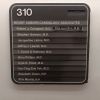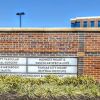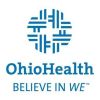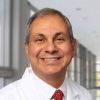The Importance of Heart Disease Specialists in Treatment and Care
When it comes to heart health, the role of heart disease specialists is absolutely crucial. As a cardiologist, I have seen firsthand how a skilled and compassionate heart disease specialist can make a profound difference in the lives of patients. Heart disease is one of the leading causes of death worldwide, and its impact extends far beyond just the physical health of individuals. It affects families, communities, and even the broader healthcare system. That’s why the expertise and care provided by heart disease specialists are indispensable.

The Essential Role of Heart Disease Specialists
Heart disease specialists, also known as cardiologists, play an integral part in diagnosing, treating, and managing a variety of heart conditions. From the initial consultation to long-term care, their responsibilities span across a range of critical tasks.
1. Diagnosis of Heart Conditions: One of the primary roles of heart disease specialists is diagnosing heart conditions. This involves conducting comprehensive evaluations, including physical exams, medical history reviews, and advanced diagnostic tests like echocardiograms, stress tests, and angiograms. These tests help the cardiologist understand the underlying causes of heart issues such as coronary artery disease, arrhythmias, and heart valve disorders.
2. Personalized Treatment Plans: After a diagnosis is made, a cardiologist will create a personalized treatment plan for the patient. This can involve lifestyle changes, medications, or in some cases, surgery. For example, if a patient has high blood pressure or cholesterol, a cardiologist may recommend medications combined with dietary changes and exercise. For patients with severe conditions like heart failure, specialists may suggest advanced treatments such as pacemakers, defibrillators, or even heart transplantation.
3. Prevention and Education: Heart disease specialists don't just focus on treatment; they are also dedicated to prevention. Through educating patients about risk factors such as smoking, diet, and physical inactivity, cardiologists can help patients take proactive steps to prevent heart disease. Regular screenings and check-ups are essential tools in identifying early signs of heart issues before they develop into serious problems.
Deborah Heart and Lung Center
deborah heart and lung center
200 Trenton Rd, Browns Mills, NJ 08015, USA

Why Expertise Matters: A Personal Story
Let me share a story that illustrates the importance of seeing a heart disease specialist. A few years ago, I had a patient named Sarah, a 45-year-old woman who came to me complaining of fatigue and chest tightness. Initially, these symptoms seemed mild and were brushed off by many, including her general practitioner. However, I insisted on running further tests, and we discovered that she was suffering from an early stage of coronary artery disease.
If Sarah had waited longer, her condition could have worsened, leading to a heart attack or irreversible damage. Instead, through early diagnosis and a carefully tailored treatment plan, she was able to make lifestyle changes and manage her condition with medication. Today, she is living a much healthier life and has avoided a potentially life-threatening situation.
Advances in Heart Disease Treatment
Over the past few decades, there have been remarkable advancements in the field of cardiology. Heart disease specialists now have access to cutting-edge technology and treatments that were once unimaginable.
1. Minimally Invasive Procedures: One of the most exciting developments has been the rise of minimally invasive procedures. Techniques like catheter-based interventions allow cardiologists to repair heart valves or clear blockages without the need for open-heart surgery. These procedures come with fewer risks, shorter recovery times, and a reduced chance of complications.
2. Cardiovascular Implants: The advent of cardiovascular implants, such as pacemakers and stents, has revolutionized heart disease management. These devices help regulate heart rhythms, keep arteries open, and even provide electrical stimulation to patients with heart failure. For many patients, these implants have been life-saving.
3. Personalized Medicine: Another breakthrough is the use of personalized medicine in cardiology. By analyzing a patient's genetic makeup, specialists can now predict which treatments will be most effective and avoid those that might cause adverse effects. This approach ensures that every patient receives the most precise and tailored care available.
The Multidisciplinary Approach to Heart Disease Care
Heart disease is a complex condition that often requires a team of specialists working together. Cardiologists frequently collaborate with other healthcare professionals, such as primary care physicians, surgeons, nurses, dietitians, and physical therapists. This multidisciplinary approach ensures that patients receive comprehensive care that addresses all aspects of their heart health.
1. Cardiac Surgeons: In cases where surgery is required, heart disease specialists work closely with cardiac surgeons to ensure that the patient receives the best possible surgical intervention. This could range from valve replacement to coronary artery bypass grafting (CABG) surgery.
2. Nurses and Technicians: Nurses and cardiovascular technicians play an essential role in patient care. They are responsible for monitoring vital signs, administering medications, and providing emotional support to patients throughout their treatment process.
3. Rehabilitation Specialists: Cardiac rehabilitation programs are crucial for helping patients recover after heart surgery or a heart attack. These programs involve exercise routines, education on heart-healthy lifestyles, and psychological support to help patients rebuild their strength and confidence.
Preventing Heart Disease: The Heart Disease Specialist’s Advice
As a heart disease specialist, I am often asked about how to prevent heart disease. While genetics can play a role, many heart conditions are preventable through lifestyle changes and regular monitoring.
1. Exercise Regularly: Physical activity is one of the best ways to keep your heart healthy. Regular exercise strengthens the heart muscle, improves circulation, and helps control weight, blood pressure, and cholesterol levels.
2. Eat a Heart-Healthy Diet: A diet rich in fruits, vegetables, whole grains, and lean proteins can reduce the risk of heart disease. Avoiding processed foods, excessive salt, and unhealthy fats is crucial for maintaining heart health.
3. Quit Smoking: Smoking is one of the leading causes of heart disease. Quitting smoking improves circulation and reduces the risk of heart attacks and strokes.
4. Regular Health Screenings: Regular check-ups with a heart disease specialist can help identify risk factors such as high blood pressure, diabetes, and high cholesterol before they become serious issues. Early detection is key to preventing heart disease from progressing.
Conclusion
Heart disease specialists play a vital role in the diagnosis, treatment, and prevention of heart-related conditions. Their expertise, combined with advancements in medical technology and personalized care, has transformed the way we approach heart health. Whether you're looking to prevent heart disease or need specialized care for a current condition, seeking out a heart disease specialist is one of the best decisions you can make for your long-term health. To find the most suitable heart specialists and hospitals, visit us at HeartCare Hub, where we provide expert recommendations tailored to your needs.





















Hoag Urgent Care Irvine - Sand Canyon
hoag urgent care
16205 Sand Canyon Ave Suite 100, Irvine, CA 92618, USA